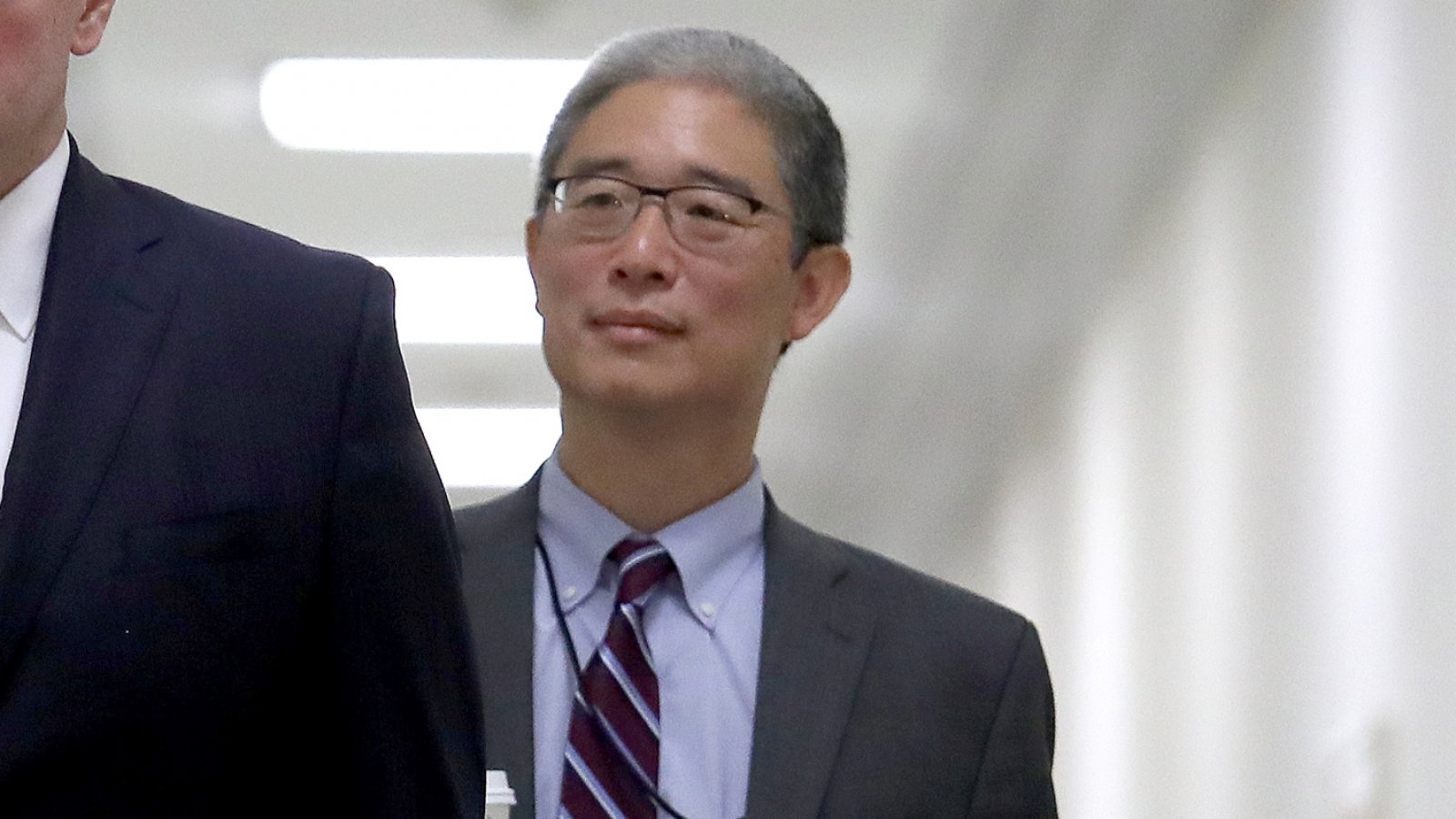
Bruce Ohr told members of Congress who interviewed him this week that during a breakfast with Christopher Steele in July 2016, he found out "Russian intelligence believed it had Donald Trump 'over a barrel.”
Ohr ... also says he learned that a Trump campaign aide had met with higher-level Russian officials than the aide had acknowledged ...
The previously unreported details of the July 30, 2016 breakfast with Christopher Steele ... reveal an exchange of potentially explosive information about Trump between two men the president has relentlessly sought to discredit.
(...)
Among the things Ohr said he learned from Steele during the breakfast was that an unnamed former Russian intelligence official had said that Russian intelligence believed “they had Trump over a barrel,” according to people familiar with the meeting. It was not clear from Ohr’s interview whether Steele had been directly told that or had picked that up through his contacts, but the broader sentiment is echoed in Steele’s research dossier.
Steele and Ohr, at the time of the election a senior official in the deputy attorney general’s office, had first met a decade earlier and bonded over a shared interest in international organized crime. They met several times during the presidential campaign, a relationship that exposed both men and federal law enforcement more generally to partisan criticism, including from Trump.
(...)
Trump and some of his supporters in Congress have ... accused the FBI of launching the entire Russia counterintelligence investigation based on the dossier. But memos authored by Republicans and Democrats and declassified this year show the probe was triggered by information the U.S. government received earlier about the Russian contacts of then-Trump campaign foreign policy adviser, George Papadopoulos.
The FBI’s investigation was already under way by the time it received Steele’s dossier, and Ohr was not the original source of information from it.
Ohr and Steele were not alone at the 2016 breakfast. An associate of Steele's also attended, as did Ohr's wife Nellie for at least part of the time.
Ohr also told Congress that Steele told him that [Carter] Page, a Trump campaign aide who traveled to Moscow that same month and whose ties to Russia attracted FBI scrutiny, had met with more senior Russian officials than he had acknowledged meeting with.
That breakfast took place amid ongoing FBI concerns about Russian election interference and possible communication with Trump associates. By that point, Russian hackers had penetrated Democratic email accounts, including that of the Clinton campaign chairman, and Papadopoulos, the Trump campaign associate, was said to have revealed that Russians had “dirt” on Democrat Hillary Clinton in the form of emails, according to court papers. That revelation prompted the FBI to open the counterintelligence investigation on July 31, 2016, one day after the breakfast but based on entirely different information.
Ohr told lawmakers he could not vouch for the accuracy of Steele’s information but has said he considered him a reliable FBI informant who delivered credible and actionable intelligence, including his investigation into corruption at FIFA, soccer’s global governing body.
In the interview, Ohr acknowledged that he had not told superiors in his office, including Deputy Attorney General Sally Yates, about his meetings with Steele because he considered the information inflammatory raw source material.
Ohr reportedly also spoke with lawmakers about the conditions surrounding his reassignment within the DOJ.
Ohr said he met in late December 2017 with two senior Justice Department officials, Scott Schools and James Crowell, who told him they were unhappy he had not proactively disclosed his meetings with Steele. They said he was being stripped of his associate deputy attorney post as part of a planned internal reorganization, people familiar with Ohr’s account say.
He met again soon after with one of the officials, who told him Attorney General Jeff Sessions and Deputy Attorney General Rod Rosenstein did not believe he could continue in his current position as director of a drug grant-distribution program — known as the Organized Crime and Drug Enforcement Task Force.
Sessions and Rosenstein, Ohr was told, did not want him in the post because it entailed White House meetings and interactions, the people said.
AP sources: Lawyer was told Russia had ‘Trump over a barrel’ (AP)